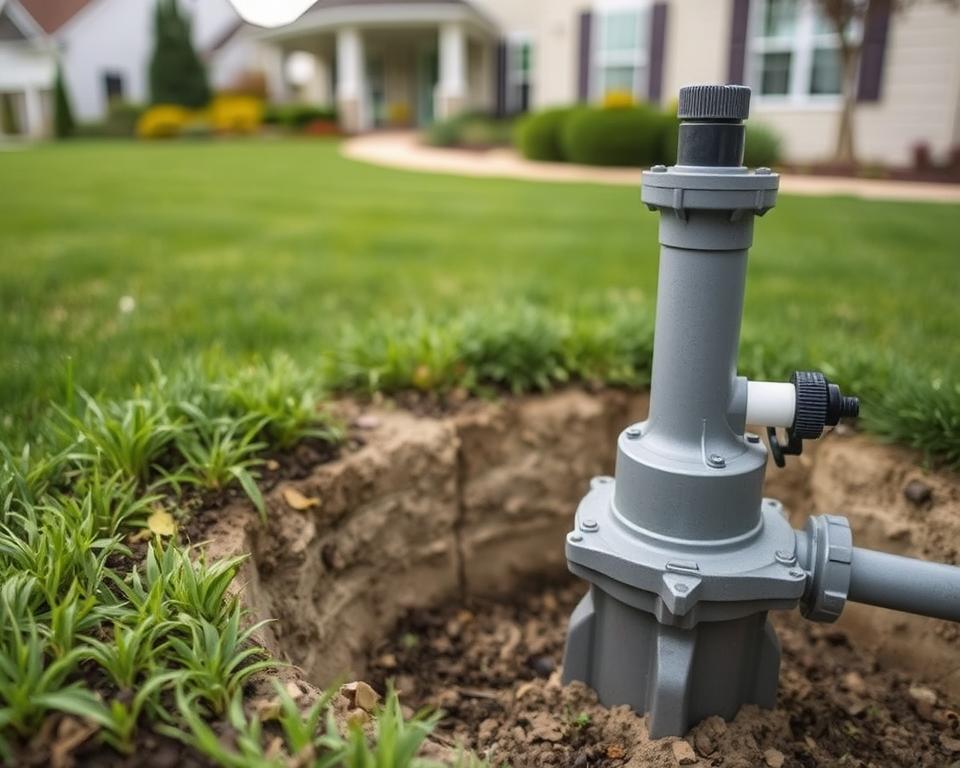Septic System Pumping
Have you ever wondered how often you should arrange septic system pumping so you can dodge costly breakdowns? With more than 20 percent of U.S. households depending on septic systems, grasping their maintenance is vital. Knowing precisely when to order a septic tank service is key to its lifespan. In addition, you can find economical septic pumping solutions that ensure high-quality functionality without overspending. This guide covers crucial upkeep recommendations beneficial for every homeowner.
Critical Points
- Regular septic system pumping is essential for optimal performance.
- Identifying the symptoms that suggest the need for service can head off major issues.
- Choosing licensed septic system pumpers secures reliable maintenance.
- Cost-effective septic pumping options are accessible for homeowners.
- Periodic inspections support optimal system performance.
Learning About Your Septic System
A septic system performs a key role in handling household wastewater, made up of several essential components that work together. The main drain line conveys wastewater from your home to the septic tank, where the process starts. In the tank, an underground chamber, solids settle at the bottom, and bacteria digest these solids, processing the waste thoroughly.
The clarified liquid outflow subsequently moves from the septic tank to the distribution box, where it is dispersed evenly across the drain field or leach field. Here, the soil carries on with the filtration, additionally purify the wastewater. Comprehending the functions of these septic system parts is essential. It enables homeowners to oversee and maintain their systems properly.
Being aware of how your septic system functions helps you implement proactive maintenance measures. It’s wise to have periodic check-ins with qualified service providers of septic systems – septic pumping near me. They provide crucial insights for peak functioning of your system. These professionals aid in arranging the required pump-outs and checks. This proactive approach can considerably extend your septic system’s lifespan.
The Value of Septic System Care
Keeping your septic tank consistently is pivotal for homeowners who wish their system to remain reliable. A well-cared-for system offers peace of mind and protects your property’s value. Without adequate care, you’re risking system breakdowns and health dangers.
Selecting a high-quality septic pumping service is essential. They deliver timely inspections and pump-outs, clearing out sludge and scum buildup. If maintenance is neglected, last-minute pumping may be required, which is expensive.
Following a regular maintenance plan is prudent. It involves professional evaluations and regular pumping. This preventive measure heads off urgent issues, providing a more secure living environment for everyone.

Signs Your Septic System Needs Attention
Being alert to septic system issues can sidestep expensive repairs and major damage. Common signs indicate when your system requires a check. These comprise:
- Delayed drains throughout the house
- Pooling water in the yard above the drain field
- Unpleasant odors near the septic tank or leach field
- Remarkably green grass growth in specific areas of your yard
These signs could point to problems that might result in your system failing. Swift intervention is essential. Contacting septic pumping experts for an inspection assists. Prompt response prevents small issues from becoming major ones. Moreover, consistent upkeep guarantees your system works well and has a longer life.
Best Practices for Septic System Pumping
Timely pumping of your septic tank is imperative to sidestep hefty clogs and backups. It’s vital to determine the ideal frequency for maintenance. Homeowners should usually plan pumping every 2 to 5 years, subject to the tank’s size and household wastewater levels. Heavy use of garbage disposals may require more frequent pumping.
Engaging qualified pumpers guarantees your tank gets a thorough clean and check-up. During pumping, technicians look for any issues, such as damaged baffles. Spotting these problems early avoids costlier expenses and inconveniences later. Routine pumping schedules and expert help ensure your septic system’s trouble-free operation.
Routine Inspections for Optimal Performance
Regular inspections are vital for your septic system’s performance. Septic system inspections uncover early issues before they escalate. Professionals advise inspections every three to five years, influenced by system size and household usage. This avoids costly fixes.
Keeping maintenance records is important for tracking your system’s condition. These records provide insights into previous inspections, repairs, and the right time to schedule septic tank cleaning services. With this information, preparing for future upkeep becomes easier, keeping septic systems in prime shape.
Regular inspections and detailed record-keeping not only boost system efficiency but also extend its life. This approach safeguards the environment and the investment in a safe, operational home.
| Inspection Type | Recommendation Frequency | Benefits |
|---|---|---|
| Visual Inspection | Annually | Identify surface issues |
| Professional Inspection | Every 3–5 years | Assess functionality and detect problems |
| Septic Tank Pumping | Every 3–6 years | Prevent overflow and system failure |
Efficient Water Usage to Extend Septic Life
Efficient water use is essential for keeping your septic system sound. It not only helps the environment but also enhances the performance of your home’s plumbing. By embracing straightforward, yet effective, conservation methods, homeowners can decrease wastewater.
Spread out your laundry activities over the week instead of completing them in a single day. This allows the septic system to manage water better and avoids tank overflow. Opting for low-flow fixtures in your kitchens and bathrooms leads to considerable water savings, keeping the water pressure up while lowering the flow rate, thus diminishing the amount of wastewater produced each day.
Quickly fixing leaks is another method to assist your septic system. Even a small leak can cause a large waste of water, stressing the septic system. Through regular inspections and repairs, you materially improve the system’s efficiency.
Emphasizing water conservation isn’t just advantageous for your septic system; it’s also a step towards sustainable living. Integrating such practices into your daily routine serves both your household and the planet.
Best Practices for Household Waste Disposal
Homeowners hold a crucial role in keeping their septic system’s health by disposing of household waste correctly. It’s critical to avoid flushing non-biodegradable items like wipes, plastics, and other harmful products in the system. These items can cause clogs, leading to expensive repairs and a drop in efficiency.
Composting food scraps and organic materials is a helpful alternative to throwing them in the trash. This practice significantly lowers the amount of solid waste entering the septic tank. Focusing on biodegradable waste disposal supports the ecological balance needed for effective waste management.
It’s essential to monitor what goes down the drains. Non-decomposable items can requiredemand more frequent septic tank pumping. By understanding and adhering to correct waste disposal methods, you can guarantee a more efficient and long-lasting septic system.
Safe Cleaning Products for Your Septic System
The health of your septic system depends significantly on your choice of cleaning products. Using septic-safe cleaning products is essential. These products safeguard the balance of beneficial bacteria that digest waste. Many standard cleaners have harmful chemicals that endanger this balance, causing costly repairs or system failure.
Homeowners should consider natural alternatives that are both efficient and environmentally friendly. Common household items like baking soda, vinegar, and lemon juice are great choices. These natural cleaners are not only capable but also encourage your septic system’s health.
Avoiding products that contain antibacterial agents and chlorine bleach is vital. Such substances destroy the beneficial good bacteria, compromising your system’s functionality. By choosing sustainable products, you ensure both the efficiency and longevity of your septic system.
Bacterial Health and Your Septic System
Bacteria play a vital role in keeping your septic system functional. They digest solids organically and improve nutrient processing. A lack of healthy bacteria can trigger system failure, resulting in expensive repairs.
Homeowners can improve their system by introducing organic additives. These products boost beneficial bacteria, making waste decomposition more effective. It’s important to choose organic additives that are beneficial, not harmful, to the septic environment.
A healthy bacterial community is essential to a septic system’s longevity and efficiency. It prevents solid buildup and lessens the need for frequent pumping. Emphasizing bacterial health creates waste management more effective and eco-friendly.
Final Thoughts
Septic system care is essential for the longevity and functionality of your home’s wastewater system. Sticking with critical maintenance tips prevents costly repairs. Knowing routine pumping and inspections is key. This guarantees your septic system stays in peak condition.
Learning about your septic system’s operation and proper methods in water and waste management is important. Engaging professionals like All in Sanitation delivers expertise. This helps secure your septic system’s long-term health and gives peace of mind.
Putting effort into proper septic maintenance today delivers future benefits. It safeguards your home and improves your family’s quality of life. Emphasizing septic system care delivers certainty with a well-maintained system.

